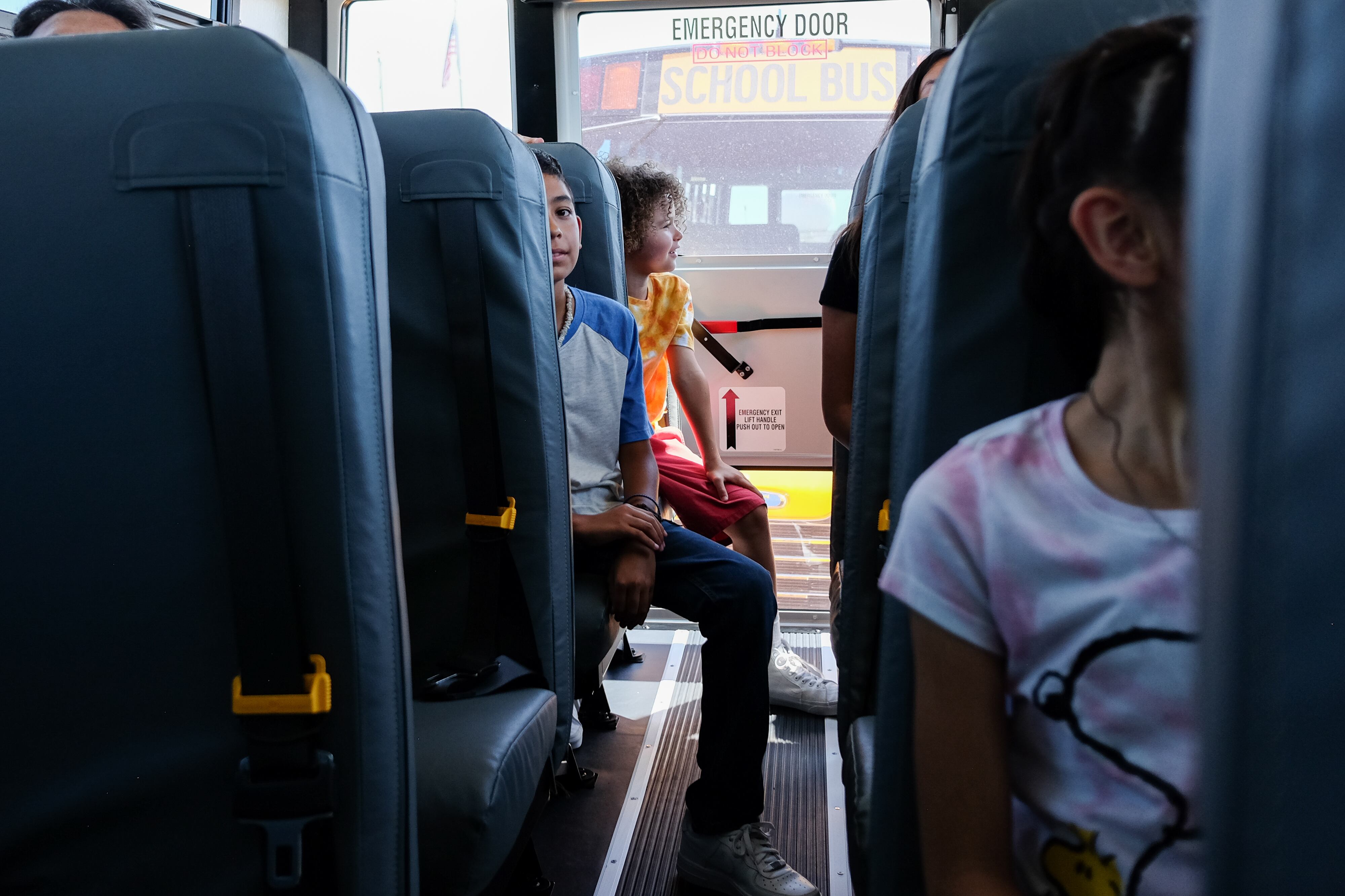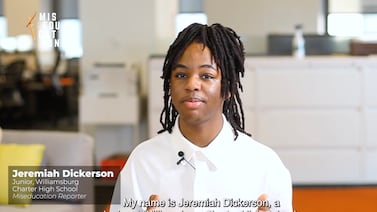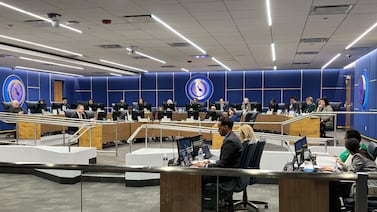If you’re anything like us, you get to the end of the year and you can barely remember what happened. So we went back through our archives to reconstruct 2022. It turns out a lot happened!
Here’s a look at some of the top Colorado education stories of 2022, from the omicron surge to social studies standards, school closures and school board dysfunction, universal preschool and pandemic recovery.
Schools weather omicron surge and ditch mask requirements
Schools that already limped through nearly two years of pandemic schooling took a beating in January as the omicron variant swept through the state. With relaxed quarantine rules in effect, most school districts kept most buildings open through the surge. But with so many teachers and students out sick, learning suffered and some classrooms were forced to shut down.
Then with omicron barely in the rearview mirror, Colorado schools dropped their mask requirements. COVID isn’t done with us — and now it’s been joined by RSV and flu — but COVID mitigation strategies no longer shape the school day.
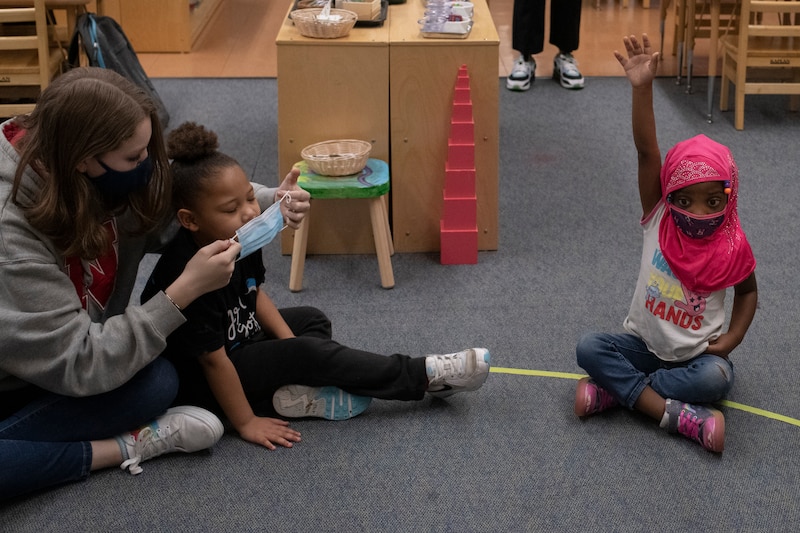
State Board orders Adams 14 reorganization
The State Board of Education inserted itself into the Adams 14 school district in May, after a new superintendent ousted an external manager who was running the district under state orders. Under the law, the order could lead to the dissolution of the chronically low-performing district or school closures — but so far it’s only led to a few meetings.
Adams 14 has the support of neighboring districts who are participating in the process, and the district seems unlikely to cede territory or autonomy.
The way the process has unfolded raises questions about the power and purpose of Colorado’s accountability law. Meanwhile, Adams 14 leaders say they have their own plan to improve instruction.

Polis signs universal preschool bill
A longtime dream of early childhood advocates and working parents everywhere got a lot closer to reality in 2022 when Gov. Jared Polis signed universal preschool into law. Using money from voter-approved nicotine taxes and the current preschool program, all 4-year-olds are supposed to have access to 10 to 30 hours a week of free preschool in the year before they start kindergarten.
Applications open in January. The system itself is supposed to launch in fall 2023 — but lots of questions remain about how many providers and families will participate.
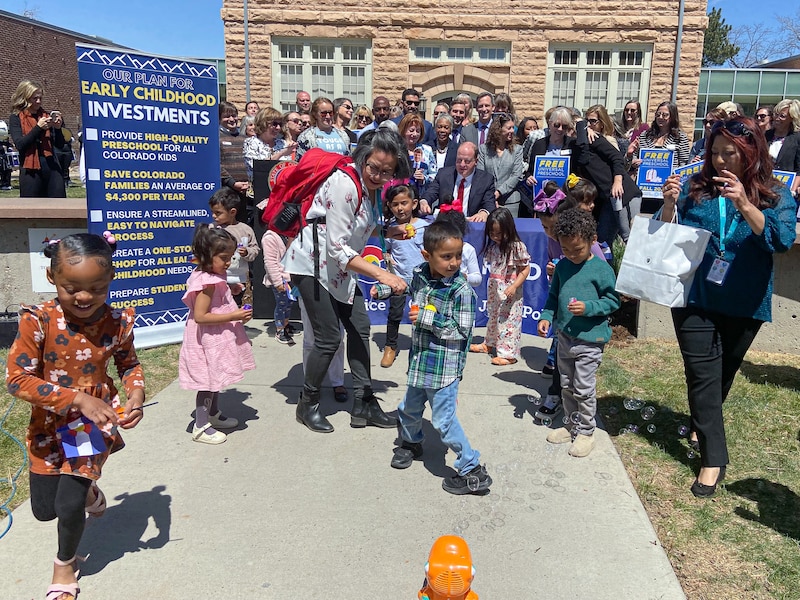
State tests show students making up ground but not to pre-pandemic levels yet
After two years of no or limited testing, Colorado students took the full suite of standardized tests in the spring: the Colorado Measures of Academic Success or CMAS for third through eighth graders and the PSAT and SAT for high school students.
The tests showed students making up ground from 2021 but still below pre-pandemic levels in most grades and subjects. Math scores suffered more than language arts, and older students saw greater declines than younger ones.
A few months later, results from the National Assessment of Educational Progress or NAEP, known as the nation’s report card, largely mirrored state test results.
Collectively, the tests show the impacts of disrupted learning and have created a sense of urgency among policy makers about improving math skills.
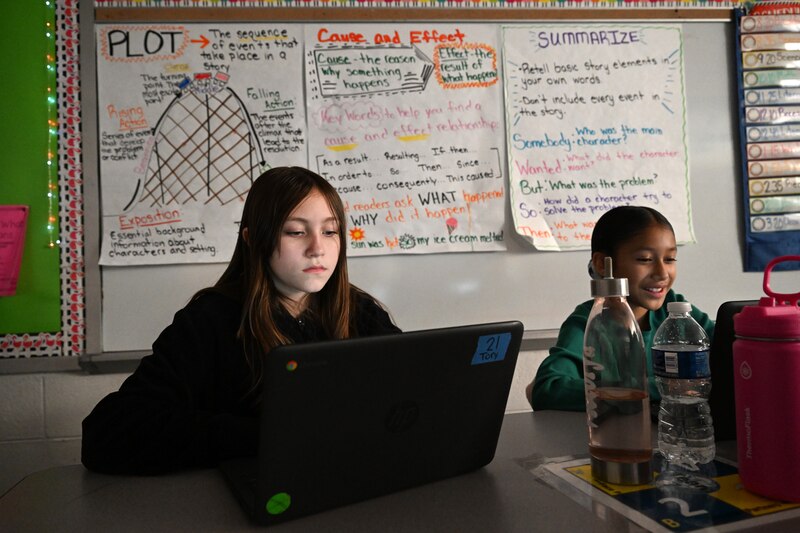
Districts grapple with declining enrollment and school closures
Some of Colorado’s largest school districts have been losing students for years as high housing prices push out families and birth rates fall. The pandemic accelerated declining enrollment, with some families opting for private school, online charters, or home school. Small schools struggle to provide the full range of programming — sometimes leading to further declines as parents opt for larger schools with better resources.
Jeffco Public Schools will close 16 elementary schools at the end of this school year and is also considering whether to close middle and high schools. Denver Public Schools was set to close 10 schools this year before the school board balked and sent the superintendent back to the drawing board.
In Aurora, the school board spared two schools recommended for closure, only to reverse course and approve closures a few months later. Even careful planning can leave communities blind-sided. There is no easy way to close a school.
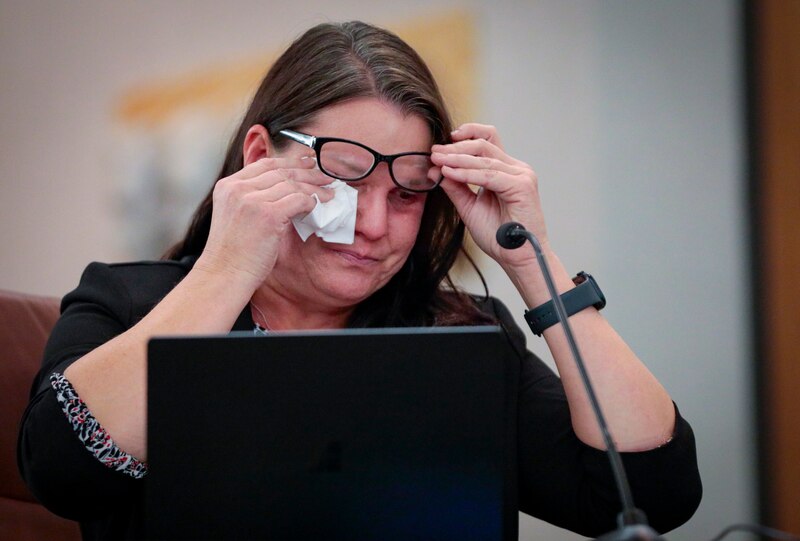
Conservatives fail to leverage education issues into electoral gains
Colorado Republicans hoped to turn parent frustration with pandemic schooling and progressive education trends into electoral victories, but they largely came up empty-handed. At the top of the ticket gubernatorial candidate Heidi Ganahl pledged to get schools back to basics and stop them from “teaching nonsense” but drew widespread mockery over comments she made about students in cat costumes on conservative talk radio.
Ganahl lost to incumbent Democrat Gov. Jared Polis — who ran on universal preschool and better education funding — by almost 20 percentage points. Democrats expanded their majorities in the state House and Senate and on the State Board of Education.

State Board adopts new social studies standards
While red states passed laws limiting what teachers can say about history, race, gender, and sexuality, the Colorado State Board of Education adopted new social studies standards that promote a more expansive view of American history and encourage schools to include perspectives of LGBTQ people and diverse racial and ethnic groups.
Republican board members had wanted to undo many of the changes, especially references to LGBTQ people in younger grades. Debate extended for months as board members read thousands of emails and letters and heard hours of public comment for and against the proposed changes.
The social studies standards even became an election issue before a divided State Board voted 4-3 to adopt the more inclusive version of the academic guidelines.
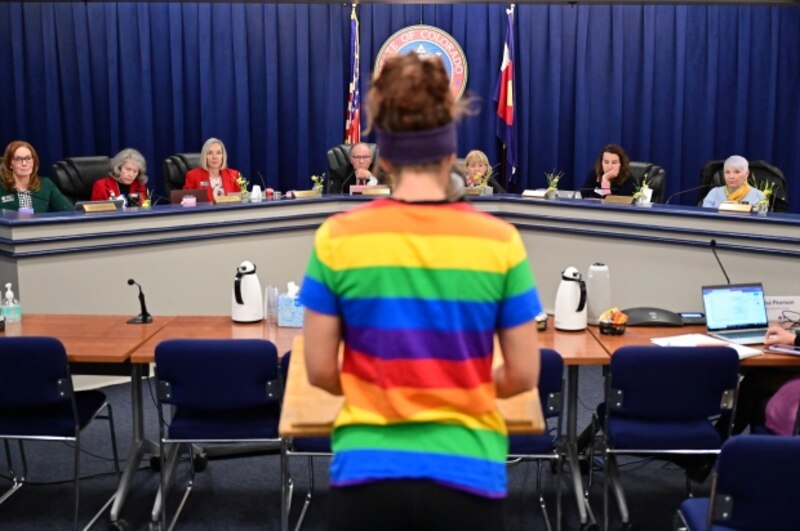
The Denver school board can’t seem to get along
Denver Public Schools was supposed to be led by a united board, all supported by the teachers union after the 2021 election.
Instead, 2022 has been marked by deep disagreements and interpersonal squabbles among the leaders of Colorado’s largest school district. Board members have interrupted one another in meetings, raised their voices, and accused each other of gaslighting, misogyny, and playing the “oppression Olympics.” Professional facilitators have struggled to change the dynamic.
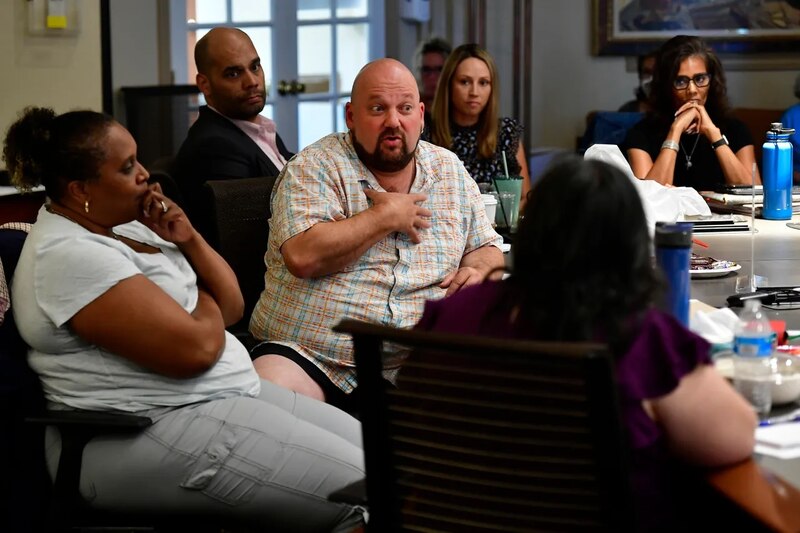
Longtime education leaders departing
Colorado Education Commissioner Katy Anthes plans to leave the state Education Department after more than six years at the helm. Widely praised as a level-headed consensus builder who kept the focus on kids, Anthes said she felt it was time for new leadership — and she’s tired after 2½ years of pandemic education.
Meanwhile, the last superintendent in Colorado’s five largest school districts who was still serving since before the pandemic is stepping aside. Rico Munn will remain with Aurora Public Schools in a reduced role through the end of the school year after the school board voted 4-3 not to renew his contract.
Munn led the district for more than nine years through state intervention, school closures, community violence, and fractious board politics. Munn and the school board president both cited differing visions for the future of the district as the reason.
Munn is among dozens of Colorado superintendents in the last two years who lost or left their jobs, worn down by leading through the pandemic or finding themselves on the wrong side of shifting school board politics.
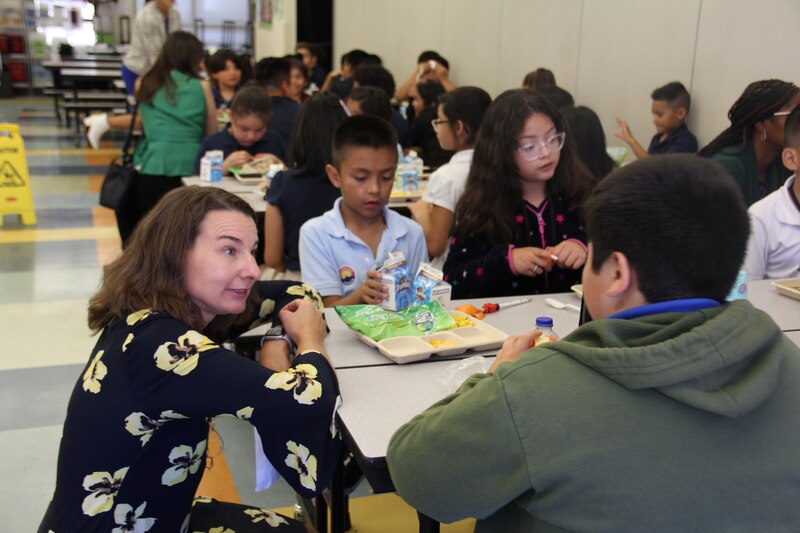
Colleges fight to get students back and meet their needs
Economic and education disruptions have derailed the college plans of thousands of Colorado students, especially those from working-class backgrounds. Community college enrollment did start to inch up again in 2022 — but the increase was driven more by high school students taking college courses than by the working-age adults these institutions were designed to serve.
There are other promising signs. The state has put federal relief money into helping students who dropped out get back into the classroom. More students filled out federal financial forms, a sign of college intentions.
But when students get to campus, they often aren’t as prepared as previous groups of students because they missed out on key high school experiences. Colleges are having to adapt with classes that aim to build study skills and social capacity and with peer mentoring that helps students stay engaged.
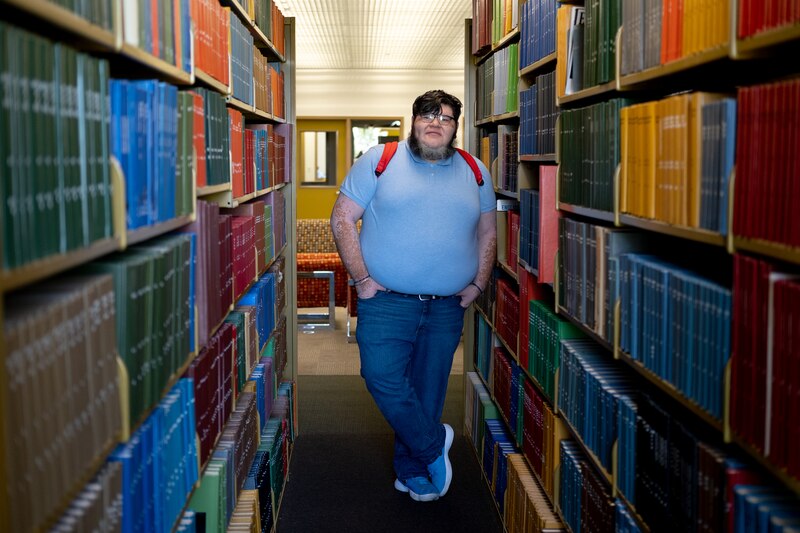
Bureau Chief Erica Meltzer covers education policy and politics and oversees Chalkbeat Colorado’s education coverage. Contact Erica at emeltzer@chalkbeat.org.

